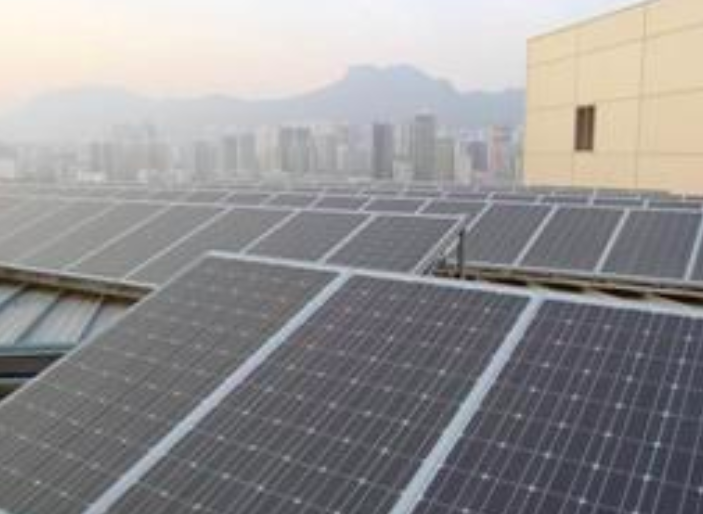The city’s Environment Bureau submitted a proposal to an environmental affairs panel under the Legislative Council earlier this week to establish a feed-in tariff (FIT) of HK$3/kWh (US$0.38) to HK$5/kWh, to facilitate sales of PV-generated electricity to local utilities, HK Electric and CLP Power.
The proposed FIT would be offered through 2033, as part of a broader 15-year plan for the city’s two major electricity suppliers that is now being formulated.
The proposed rates compare favorably with current consumer electricity rates charged by the two companies, which range from about HK$1.12/kWh to HK$1.15/kWh. However, under the current proposal, the two utilities would likely defray costs by selling renewable energy certificates.
To support the deployment of renewables in government and community buildings, the Hong Kong authorities aim to increase funding from HK$200 million, to HK$1 billion. The government expects yearly electricity generation from renewables to hit 6 million/kWh, according to an online statement.
In late February, the Hong Kong government floated the idea of prioritizing the construction of rooftop PV arrays and energy-efficient buildings in its 2018-19 proposal, by potentially providing additional tax incentives to property developers.
According to the proposal, building owners would have to sign up for the Energy Efficiency Registration Scheme for Buildings under the government’s Electrical and Mechanical Services Department to qualify for the incentives.
Rooftop solar is well-suited to densely populated Hong Kong, which has an abundance of buildings on which to install PV systems. However, there is also enormous potential to install floating solar arrays throughout the land-scarce city.
In mid-2017, Black & Veatch, a global infrastructure consultancy, revealed plans to study the feasibility of deploying floating PV systems on 17 reservoirs throughout Hong Kong, in cooperation with the Water Supplies Department of the Hong Kong Special Administrative Region.
Among numerous considerations, the risk-based assessment will look at the risk posed by typhoons.
This content is protected by copyright and may not be reused. If you want to cooperate with us and would like to reuse some of our content, please contact: editors@pv-magazine.com.



By submitting this form you agree to pv magazine using your data for the purposes of publishing your comment.
Your personal data will only be disclosed or otherwise transmitted to third parties for the purposes of spam filtering or if this is necessary for technical maintenance of the website. Any other transfer to third parties will not take place unless this is justified on the basis of applicable data protection regulations or if pv magazine is legally obliged to do so.
You may revoke this consent at any time with effect for the future, in which case your personal data will be deleted immediately. Otherwise, your data will be deleted if pv magazine has processed your request or the purpose of data storage is fulfilled.
Further information on data privacy can be found in our Data Protection Policy.